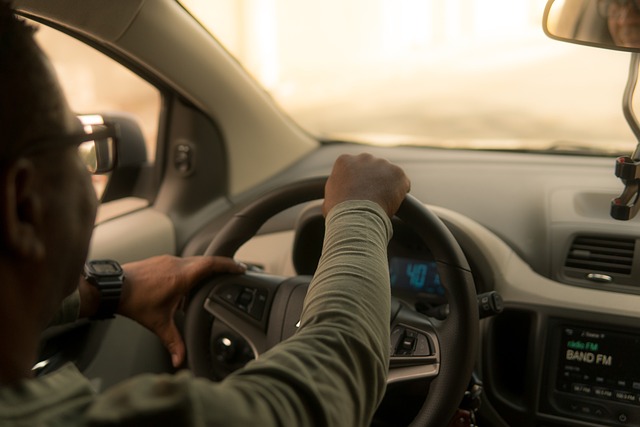Popular ridesharing services like Uber and Lyft have completely advanced the carpool game when it comes to getting around in large and popular cities like New York. These convenient and accessible modes of transportation have become increasingly desired among residents and visitors alike. However, with the rise in ridesharing usage comes various legal implications and concerns, particularly regarding insurance coverage in the event of an accident.
Let’s take a closer look at the legal landscape of ridesharing in New York, exploring the rights and responsibilities of drivers and passengers and the insurance coverage available in the event of an accident. Understanding these crucial aspects is essential for all parties involved in ridesharing to navigate the potential legal challenges and ensure appropriate protection and compensation in the event of an incident.
The Legal Implications of Ridesharing in New York
Ridesharing companies like Uber and Lyft operate under a different legal framework than traditional taxi services. In New York, ridesharing is regulated by the New York State Department of Motor Vehicles (DMV) and the New York City Taxi and Limousine Commission (TLC). These regulatory bodies enforce specific requirements and guidelines for ridesharing companies to ensure the safety and well-being of passengers.
One of the key legal implications of ridesharing in New York is the classification of drivers as independent contractors. Unlike traditional taxi drivers, who are considered employees, ridesharing drivers are generally classified as independent contractors, which has implications for insurance coverage and liability in the event of an accident.
As independent contractors, ridesharing drivers are responsible for their own insurance coverage, vehicle maintenance, and operating expenses. In the case of an accident, an expert attorney will be able to assist you in filing a claim for any type of rideshare incidents. Speak with a Shulman & Hill Car accident lawyer for more specific information and to pursue a claim.
Insurance Coverage Requirements for Ridesharing Services
To address the unique circumstances of ridesharing, the state of New York has implemented specific insurance coverage requirements for ridesharing companies and their drivers. These requirements aim to protect both the drivers and passengers in the event of an accident. The insurance coverage requirements vary depending on the stage of the ridesharing trip:
Stage 0: The app is off, or the driver is not available for hire.
During this period, the ridesharing company’s insurance coverage is not in effect. The driver is responsible for their own personal auto insurance coverage, similar to any private vehicle owner.
Stage 1: The app is on, and the driver is available for hire.
In this period, the ridesharing company is required to provide contingent liability coverage. This coverage includes:
- $75,000 for bodily injury or death per person
- $150,000 for bodily injury or death per accident
- $25,000 for property damage per accident
Period 2: The driver has accepted a ride request and is on their way to pick up the passenger.
During this period, the ridesharing company is then also required to provide primary liability coverage, which includes:
- $1,250,000 for bodily injury or death per person
- $1,250,000 for bodily injury or death per accident
- $1,250,000 for uninsured/underinsured motorist coverage per accident
Stage 3: The passenger is in the vehicle.
Similar to Stage 2, the ridesharing company is required to provide primary liability coverage with the same limits.
It is important to note that the insurance coverage provided by the ridesharing company is contingent upon the driver’s personal auto insurance policy being in effect and not providing coverage.
Legal Challenges and Considerations
While insurance coverage requirements are in place to provide a level of protection for both drivers and passengers, there are still important legal factors to consider. By understanding these challenges, you can make informed decisions and ensure that you are well-prepared when it comes to the legal aspects of using ridesharing services in New York.
Here are some of the things to keep in mind!
Coverage Gaps
There may be instances where the driver’s personal auto insurance policy does not cover ridesharing activities, particularly during stage 1, when the driver is available for a ride but has not yet accepted a request for a ride. In such cases, drivers may need to rely on additional insurance coverage to bridge the gap.
Determining Liability
In the event of a car accident, determining liability can be very tricky. Multiple parties may be involved, including the ridesharing company, the driver, other motorists, and pedestrians. Each party’s insurance coverage and liability must be carefully evaluated to ensure appropriate compensation for the injured parties.
Reporting and Filing Claims
In the event of an accident involving a ridesharing vehicle, it is key to report the incident to the appropriate authorities and file an insurance claim promptly. Failure to do so may result in difficulties in obtaining compensation for medical expenses, property damage, and other losses.
Passenger Safety
While ridesharing services strive to provide a safe transportation experience, accidents can still occur. Passengers should prioritize their safety by wearing seatbelts, adhering to traffic rules, and reporting any concerns or incidents to the ridesharing company.
Rideshare With Ease!
Ridesharing services have transformed the way people travel in New York and other cities. But, understanding the legal implications and insurance coverage requirements associated with ridesharing is vital for both drivers and passengers. Those who take the time to familiarize themselves with the regulations, rights, and responsibilities involved in ridesharing, can navigate this evolving landscape with confidence and make sure that their protection and well-being are thought of first in the event of an accident.







Recent Comments